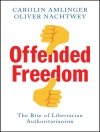In this book, Ibrahim employs Bourdieu’s key concepts in order to explain the complex dynamics of social movements by detailing the key stages of development of, and ideological conflict between, 21st century British anti-capitalist organizations, and their interactions with wider social and political forces.
Tabela de Conteúdo
1. Introduction: A New Era of Social Movement Analysis: A Bourdieusian Approach
2. Anti-neoliberalism and British Anti-capitalism
3. Towards a New Theory of Social Movement Practice
4. Political Distinction and the Reflexive Anti-capitalist Habitus
5. Fields of Struggle: Ideological Competition and Conflict
6. A Very British Coup: Transforming Fields Through Superior Capital
7. The Occupy Movement: a Crisis of Doxa
8. Conclusion
Sobre o autor
Joseph Ibrahim is Senior Lecturer in Sociology at Leeds Beckett University, UK. His research interests are in social theory, political and social movements, ideology, and social network analysis. He has published a number of journal articles on British anti-capitalism and the student protest movement.












